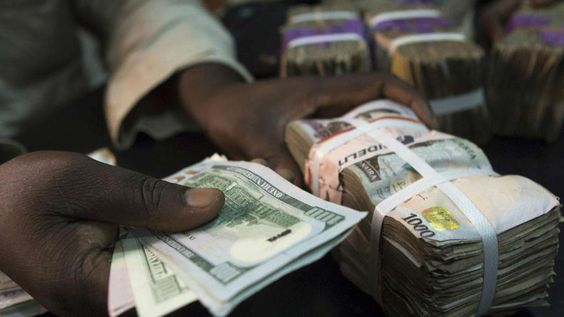Business
Exchange rates for the Naira are still poor, at N1,040 to $1

The demand for foreign currency continually outstrips the supply, causing the exchange rate between the Nigerian naira and the US dollar to plunge to N1,040 on the black market.
According to forex brokers, the rate between N1,035 and N1,045 to the dollar fluctuates, indicating a rise in shortage on Thursday.
People are now having difficulty buying foreign currency even through legitimate means, which is a worsening problem.
The Investors and Exporters (I&E) window is currently short on dollars, and banks have stopped selling foreign exchange, according to an unnamed forex dealer.
Read Also:Lemo advises CBN to clear the forex backlog to increase naira confidence
As they no longer issue letters of credit, they advise clients to fund their accounts instead. Currently, the main source of foreign exchange is the illegal market.
The discrepancy between the rates Nigerians experience outside of official channels is starkly contrasted with the official exchange rate, which is still N776.8/$1.
When the N1,000/$1 barrier was crossed by the parallel market in September, some commentators originally thought it was a passing phenomenon. The exchange rate has been steadily declining as a result of the government’s failure to draw in foreign capital.
Buyers and sellers have quoted about N1,040 to $1 on peer-to-peer exchanges where cryptocurrencies are used for trade. Exchange rates of roughly N1,022/$1 and N1,017/$1 have been made available by foreign investment trading platforms including Bamboo and Trove.
Approximately 26%, or N265 to $1, has been added to the difference between official and black market values. This contrasts with the 38.6% difference, or around N290/$1, that was present before to the exchange rate unification. In order to match the 38.6% difference, the exchange rate would have to decline to N1,200/$1 if the official rates remained the same.
The growing gap indicates that this situation is becoming more likely as the value of the currency continues to decline due to rising demand and tight supply.
In order to reduce demand pressure and preserve currency rate stability, the foreign exchange market is still being actively intervened in, according to the Central Bank of Nigeria’s half-year financial markets report.
The foreign exchange market saw sales of US$6,439.33 million in total, made up of spot sales of US$1,557.47 million and forward sales of US$4,881.86 million.
With the central bank investing a total of US$655.53 million in the foreign exchange market, the spot sales included US$612.41 million at the interbank Secondary Market Intervention Sales (SMIS) window, US$455.31 million for Small and Medium Enterprises (SMEs), US$441.75 million for invisibles, and US$48.00 million at the I&E window.
